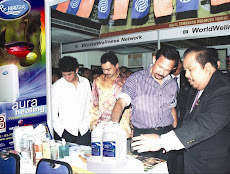Is drinking too much water a problem?
Drinking water in excess (over-hydration) can unbalance the electrolytes in the body over the safe limits. We have to make sure we eat enough fruits and vegetables containing the necessary supply of minerals and also eat salt.
"Sodium will enforce the osmotic process between the fluid outside and inside our cells, vitally important to the brain function. If someone over-hydrates and forces salt out of the body without replacing it, the brain cells will gradually swell up; the person could suffer brain damage and die.
- This happens from time to time if people exercise regularly, sweat profusely and lose salt, and then keep on drinking only water, without replacing the lost salt.
I have said repeatedly, salt is not bad for you. It does not raise the blood pressure. It is the insufficiency of other minerals that normally hold on to and keep water inside the cells that causes a rise in blood pressure. Given in conjunction with other minerals, salt will actually lower blood pressure to normal levels.
Potassium, calcium, magnesium and zinc are the main minerals that regulate the water levels inside the cells.
These elements are needed to keep the interior of the cells in the body in osmotic balance and in good working order.
These are elements that work with sodium to keep blood pressure in its normal range." " Dr F. Batmanghelidj MD
*Endurance athletes like long distance runners, cyclists, cross country skiers, etc., are given for instance, electrolyte beverages under medical supervision.
Drinking fluids is usually sufficient for mild dehydration (tells NIH). It is better to have frequent, small amounts of fluid rather than trying to force large amounts of fluid at one time. Drinking too much fluid at once can bring on more vomiting.
Electrolyte solutions or freezer pops are especially effective. These are available at pharmacies. Sport drinks contain a lot of sugar and can cause or worsen diarrhea. In infants and children, avoid using water as the primary replacement fluid.
Intravenous fluids and hospitalization may be necessary for moderate to severe dehydration. The doctor will try to identify and then treat the cause of the dehydration.
RX-WATER -Terapi Air Penyembuh Aura
17 years ago





No comments:
Post a Comment